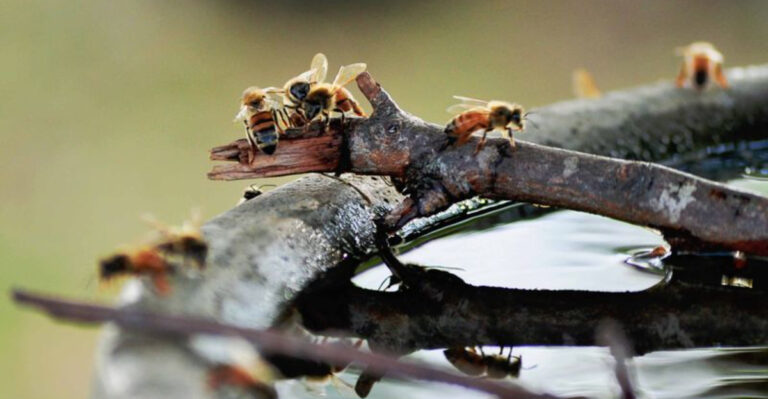13 Smells That Armadillos Absolutely Hate

Got armadillos turning your yard into their personal playground? These tough little diggers rely on their noses to find food, but some scents make them want to run for the hills!
Whether you’re dealing with burrowed guests or just want to keep them away, certain smells work like magic to send them packing. From natural repellents to everyday household items, these powerful scents can help keep armadillos at bay.
Using these smells strategically can make your yard a no-go zone for these burrowing creatures, protecting your lawn and garden from unwanted visitors.
1. Mothballs

Mothballs are a common household item that possess a strong odor detested by many animals, including armadillos. Their pungent smell originates from chemicals like naphthalene or paradichlorobenzene, which are effective in repelling pests. When placed strategically around a garden, these small, white balls can serve as a useful deterrent. However, caution should be exercised due to their potential toxicity to pets and children.
When using mothballs as a repellent, it’s essential to place them in areas inaccessible to curious pets or kids. Their strong scent not only keeps armadillos away but also other unwelcome visitors like snakes and rodents. For maximum effectiveness, replace them regularly as they tend to lose potency over time.
If you’re considering a more natural approach, alternative methods such as using essential oils might be preferable. Nonetheless, for those looking for a quick and impactful solution, mothballs remain a popular choice among gardeners.
2. Cayenne Pepper

Cayenne pepper, with its fiery heat, is more than just a kitchen staple; it’s a natural armadillo repellent. Its spicy aroma and the irritation it causes upon contact make it an effective deterrent for these digging creatures. Sprinkling cayenne pepper around the perimeter of your garden can create an invisible barrier that armadillos tend to avoid.
This method is not only effective but also environmentally friendly, making it a preferred choice for those wary of chemicals. The pungent scent lingers, ensuring that armadillos think twice before entering your space. However, it is important to reapply the pepper after rain, as water can wash away the powder, reducing its effectiveness.
For best results, mix cayenne pepper with water and a few drops of dish soap to create a spray. This can be applied to plants and garden beds, ensuring a more uniform distribution. This spicy solution, while harmless to plants, will send armadillos searching for a less spicy locale to explore.
3. Ammonia
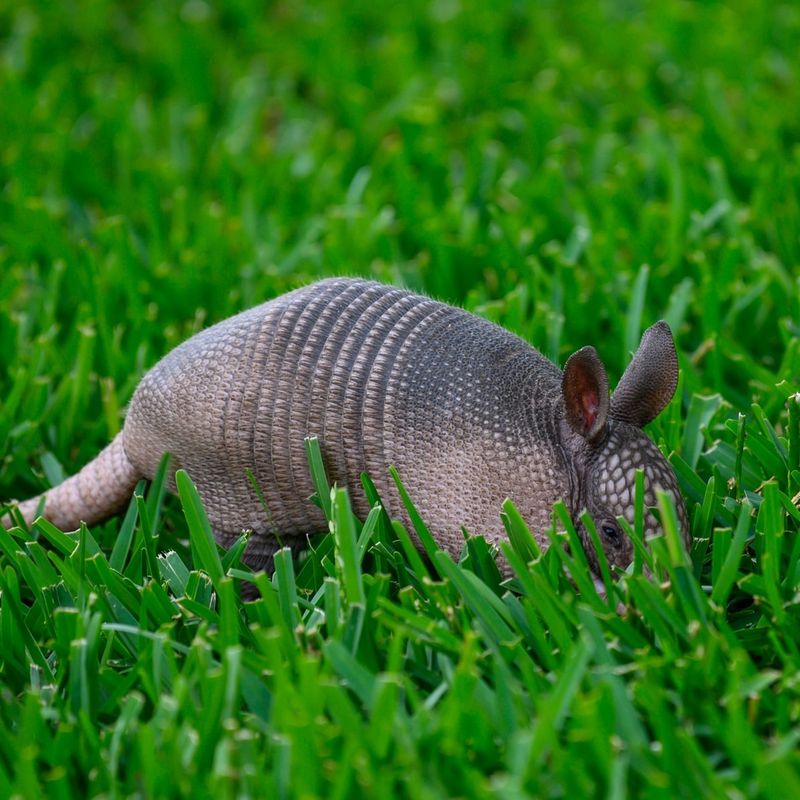
Known for its sharp and overwhelming odor, ammonia serves as a potent armadillo deterrent. The intense smell can be unpleasant for these creatures, steering them away from your garden. Spraying ammonia around potential entry points can help in warding off armadillos without causing them harm.
To utilize ammonia effectively, fill a spray bottle with equal parts water and ammonia. Spray this mixture around the perimeter of your garden or near burrow entrances.
The strong scent acts as a natural barrier, deterring unwanted visitors while being safe for plants. It’s important to remember that ammonia can dissipate quickly, so frequent reapplication may be necessary.
While ammonia is a powerful tool, it should be used with caution. Ensure that pets and children are kept away from recently sprayed areas, as the fumes can be irritating. Always handle ammonia with care, wearing gloves and a mask if needed, to prevent skin and respiratory irritation.
4. Garlic
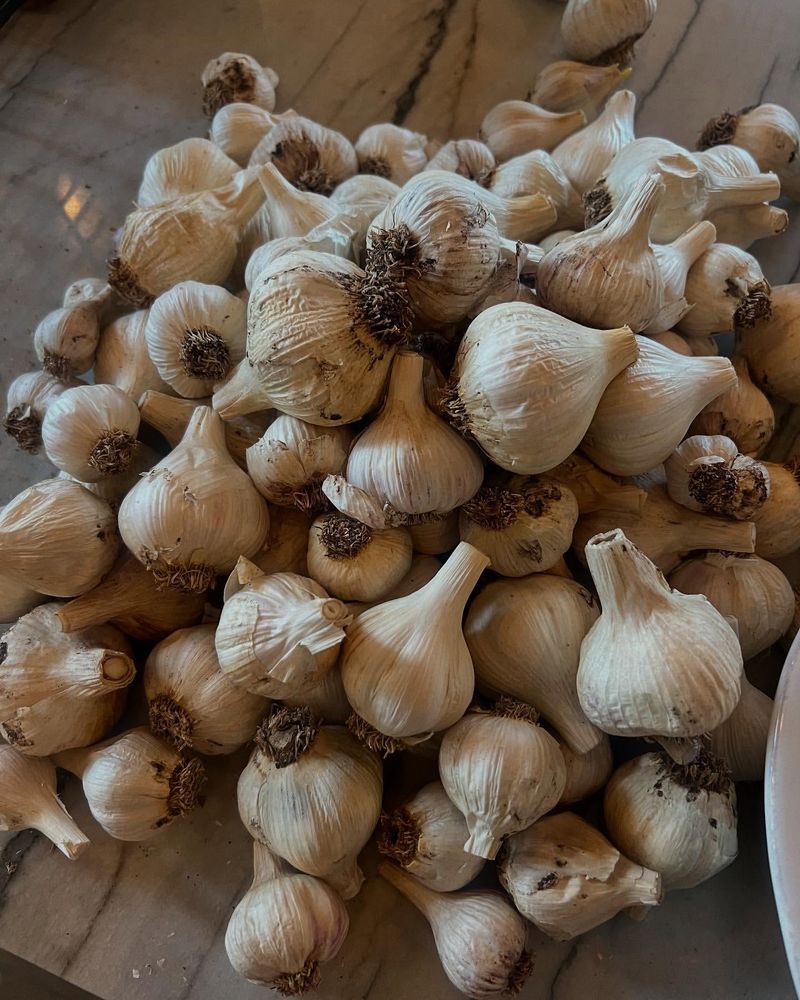
By crushing garlic and spreading it around your garden, you can create a natural barrier that these animals will likely avoid.
The use of garlic is a safe and effective method, ideal for those seeking organic solutions. Its scent can permeate the air and soil, effectively discouraging armadillos from digging. Additionally, garlic’s repellent properties extend to other pests, providing a dual benefit to gardeners.
For an even stronger solution, mix crushed garlic with water to create a spray. This can be applied around plants and garden beds for enhanced protection. The beauty of using garlic lies in its simplicity and ease of application, making it a go-to for those looking to protect their green spaces naturally.
5. Vinegar

Vinegar is not just a kitchen essential but also a natural armadillo deterrent. Its strong acidic smell is unpleasant to these creatures, making it an effective tool to keep them away from your garden. Pouring vinegar around entry points can discourage armadillos from venturing further.
To create a more potent solution, mix vinegar with water and a few drops of dish soap. This concoction can be sprayed around the garden or directly onto plants to prevent armadillo intrusion. However, ensure that the mixture is applied carefully to avoid harming delicate plant roots.
Vinegar’s effectiveness stems from its ability to mask the scents that attract armadillos in the first place. By disrupting their sense of smell, vinegar can steer them away in search of less offensive-smelling areas. Regular application is key, especially after rainfall, to maintain its repelling properties.
6. Castor Oil
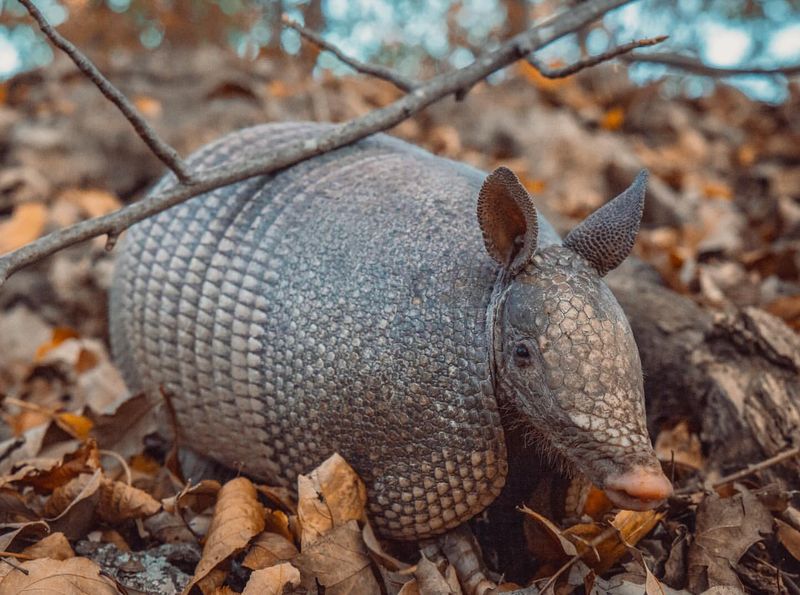
Often used in skincare and health remedies, castor oil also serves as a viable armadillo repellent. Its thick consistency and strong odor can create an environment that these creatures find unwelcoming. When applied correctly, castor oil can help protect your garden without harming the wildlife.
To utilize castor oil effectively, mix it with water and a bit of dish soap to create a spray. This mixture can be applied along garden perimeters and near burrow entrances. The lingering scent of castor oil acts as a deterrent, encouraging armadillos to seek refuge elsewhere.
The use of castor oil as a repellent is both practical and safe, especially for those who prefer natural solutions over chemical alternatives. It offers the added benefit of being biodegradable, ensuring that your garden remains eco-friendly while deterring unwanted guests.
7. Eucalyptus Oil

Eucalyptus oil, renowned for its refreshing and medicinal properties, is also an effective armadillo repellent. Its strong, minty aroma is off-putting to armadillos, making it a natural choice for those looking to protect their gardens. By incorporating eucalyptus oil into your garden care routine, you can create a scent barrier that these creatures tend to avoid.
This essential oil can be mixed with water and sprayed around potential entry points, creating an invisible shield against armadillos. Additionally, soaking cotton balls in eucalyptus oil and placing them strategically around the garden can enhance its repelling effects.
The use of eucalyptus oil not only deters armadillos but also provides a pleasant aroma for humans, making it a dual-purpose solution. It’s a particularly good choice for those who wish to maintain an aesthetically pleasing garden without the intrusion of unwelcome diggers.
8. Lavender

Lavender, with its soothing fragrance, is a favorite among gardeners. However, this pleasant aroma is quite the opposite for armadillos. The strong scent of lavender is something these animals find intolerable, making it an effective deterrent when cultivated strategically.
Planting lavender around your garden’s perimeter not only beautifies the space but also creates a natural barrier that armadillos are likely to avoid. The scent of lavender can overpower other smells that attract these creatures, effectively keeping them at bay.
For those who prefer not to plant lavender, using lavender essential oil can serve as an alternative. Mixing it with water and spraying around the garden can mimic the effect of the plant itself. This method offers a fragrant solution to an armadillo problem, ensuring that your garden remains serene and undisturbed.
9. Cinnamon

This spice known for its warm and inviting scent can also act as a natural armadillo deterrent. Its strong aroma is something these animals find disagreeable, making it a useful tool in garden protection. By sprinkling ground cinnamon around your garden, you can create a scent barrier that armadillos are inclined to avoid.
Not only does cinnamon repel armadillos, but it also adds an extra layer of protection against other pests. The spice’s unique scent can confuse and deter a variety of garden intruders, making it a versatile addition to your pest control arsenal.
For those seeking a more concentrated effect, cinnamon essential oil can be used in a similar fashion. Mixed with water and sprayed around the garden, it provides a potent aroma that keeps armadillos and other pests away without harming plants. This spice-based solution is both effective and pleasantly aromatic, appealing to those who prefer natural methods.
10. Peppermint Oil
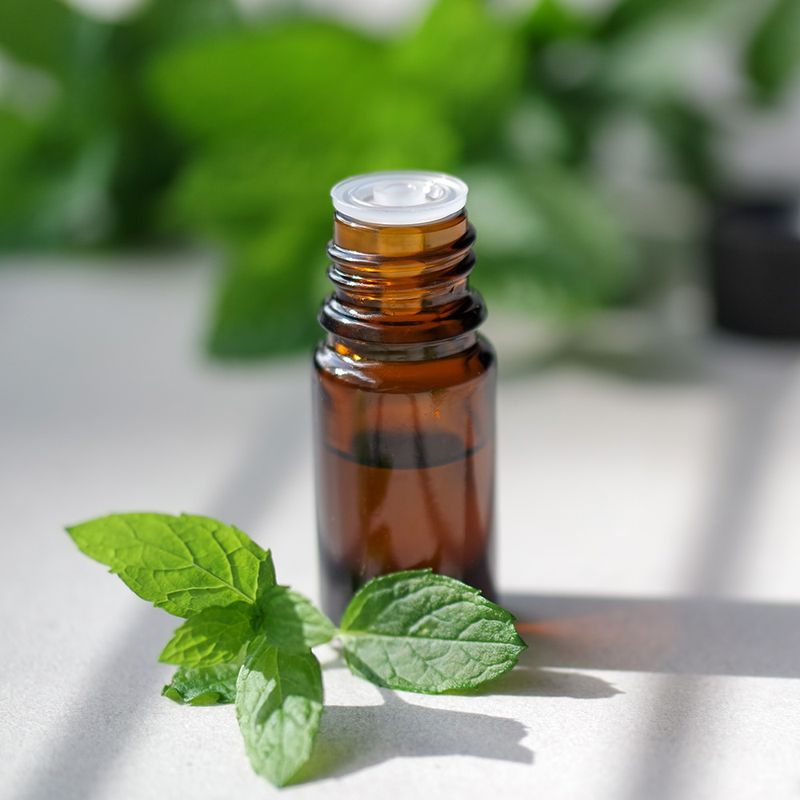
Peppermint oil, celebrated for its invigorating scent, is another natural armadillo repellent. Its strong, minty aroma is something armadillos find particularly offensive, making it an excellent choice for garden protection. By using peppermint oil, you can create a refreshing yet effective deterrent.
To harness the power of peppermint oil, mix it with water and spray it around your garden or near armadillo burrows. The scent creates a barrier that keeps these creatures from venturing further. Additionally, soaking cotton balls in peppermint oil and placing them strategically can enhance its effectiveness.
The dual benefit of peppermint oil lies in its ability to repel armadillos while leaving behind a pleasant aroma for humans. This makes it a favored choice for those looking to maintain a fresh-smelling and armadillo-free garden. By embracing this natural solution, you can protect your green spaces with ease and efficiency.
11. Onion

Onions serve as an effective armadillo repellent. Their strong, pungent smell is something that deters these animals from digging in gardens. By planting onions or scattering onion pieces around, you can create a natural barrier that armadillos are inclined to avoid.
The scent of onions can mask other odors that attract armadillos, effectively steering them away from your garden. Additionally, onions provide a dual-purpose benefit by also deterring other pests, ensuring a healthier garden environment.
For an intensified effect, onion juice can be mixed with water and sprayed around potential entry points. This creates a powerful aroma that armadillos find unwelcoming, encouraging them to search for more pleasant pastures. The use of onions offers a simple yet effective solution for those seeking natural pest control methods.
12. Citrus Peels

With their zesty aroma, citrus peels are more than just kitchen scraps; they are a natural armadillo repellent. The strong citrus scent is something these creatures find offensive, making it an effective tool for garden protection. By scattering citrus peels around, you can create a scent barrier that keeps armadillos at bay.
This method is not only effective but also environmentally friendly, as it involves repurposing waste. The citrus smell can overpower other odors that attract armadillos, ensuring a safer garden environment. Additionally, the peels can decompose naturally, enriching the soil over time.
Mixing the oil with water and spraying around the garden enhances the scent, providing a potent barrier against armadillos. This citrus-based solution offers a fresh and natural way to protect your garden.
13. Coffee Grounds
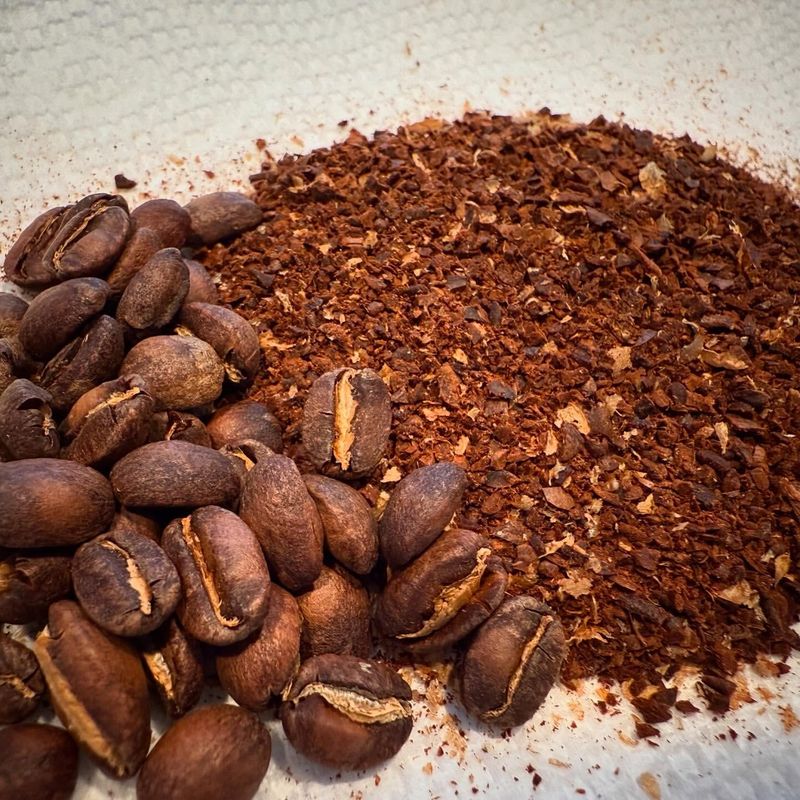
Coffee grounds, often used as compost, can also serve as a natural armadillo deterrent. Their strong, earthy aroma is something these creatures find unappealing, making coffee grounds an excellent choice for protecting your garden. By sprinkling used coffee grounds around, you can create a scent barrier that armadillos tend to avoid.
In addition to repelling armadillos, coffee grounds enrich the soil, providing a dual benefit for gardeners. The grounds can enhance soil quality while keeping unwanted diggers at bay, making them a valuable addition to your gardening routine.
For maximum effectiveness, distribute coffee grounds around the perimeter and near potential burrow entrances. Regular application, especially after rain, ensures that the scent remains potent. Embracing coffee grounds as a natural repellent offers an eco-friendly and effective solution for maintaining a peaceful garden.






